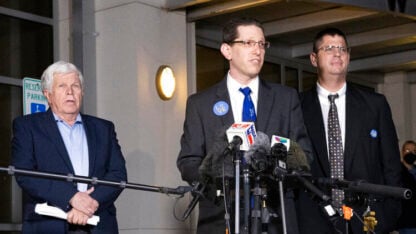Atlanta Cybersecurity Expert Audited Federal Infrastructure For Years, Says Colonial Hack Was No Surprise
As the Biden Administration tightens regulations on critical infrastructure like fuel pipelines, one Atlanta-based cybersecurity expert says it’s better late than never. Because what he’s seen while conducting federal utility audits in the past, scares him.
Nick Santora is the CEO of cybersecurity education company, Curricula — based in the Atlanta Tech Village. He told WABE’s ‘All Things Considered’ Jim Burress that for years before starting Curricula, he conducted federal utility audits.
He told Burress as evidenced by the May ransomware attack on Alpharetta-based Colonial Pipeline, preventing a security breach is a whole lot less costly than resolving one – always going to be security gaps in that kind of critical infrastructure.
“It’s not the stuff you see in the movies everyday where it’s this complex series of events, it’s literally someone clicking on a link,” Santora said.
“It’s kind of basic hygiene that’s what is causing these events to happen, and we’re not really brushing our teeth digitally.”
The US Department of Homeland Security announced the more strict security requirements this month. Gas shortages left Georgia under a state of emergency for most of May as panic buying pushed-up gas prices across the Southeast.
DHS specified federally designated pipelines– that carry hazardous liquids or natural gas–must undergo a full cybersecurity review – and it’s urgent to adapt to “evolving threats” from cyber intrusions.
Colonial eventually decided to pay a ransom to the Russian-based hacking group known as DarkSide – translated from cryptocurrency to roughly 4.4 million dollars. The US Department of Justice eventually recovered about half of the ransom in June.
Lily Oppenheimer contributed to this report.








